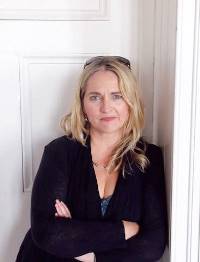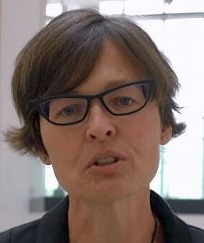DUCIS has hosted five international conferences since its inauguration in 2003 and, as part of the English Department at Dalarna University, it has helped organise the first student conferences in Sweden. It has also organised a bilingual Beckett Symposium in collaboration with Karlstad University. All our courses are taught online as well as on campus.
Guest lecturers and visiting writers have regularly contributed to DUCIS research culture; bilateral agreements at the university level have enabled student and staff exchanges with institutions throughout the world, including the University of Limerick. The latest international conference, "A New Ireland?: Representations of History in Literature and Culture", took place in Falun on 3-4 November 2011.
About DUCIS
As the first centre of Irish Studies in Sweden, DUCIS provides a forum where staff and students can further their research in Irish Studies, and establish and maintain contact with other scholars working in the field of Irish Studies in Sweden and Scandinavia, as well as internationally.
The aims of DUCIS are as follows:
- to provide a national focal point for Irish Studies in Sweden
- to raise the profile of Irish Studies in Sweden, and, through cooperation with Nordic scholars, in the Scandinavian countries
- to help broaden the field of Irish Studies by including theoretical and philosophical perspectives
- to provide a forum for researchers in Irish Studies, and to help disseminate research findings to a wider audience
- to organise conferences and symposia in Irish Studies, where students and staff can present their research
- to publish the scholarly journal Nordic Irish Studies for NISN (Nordic Irish Studies Network) in cooperation with CISA, the Centre for Irish Studies, Aarhus, Denmark
- to facilitate exchange and cooperation between Swedish and international scholars of Irish Studies by participating in exchange programmes and joint research projects, in addition to conference activities
- to become a centre of cultural exchange for visiting Irish writers and scholars
- to become a centre of scholarship across a wide range of disciplines, such as music, art, history, anthropology, and religion
- to arrange cultural activities, such as readings from visiting Irish writers
- to maintain a website and links to other websites of interest for Irish Studies
DUCIS warmly welcomes the participation of all those who are supportive of its aims. Please contact Billy Gray, Carmen Zamorona Llena, or David Gray to request additional information on current projects or to suggest possible contributions to our research.
Information for Prospective Students
There are several advantages to studying Irish literature at Dalarna University, both from an academic and a cultural point of view.
Academically, Dalarna University Centre for Irish Studies is dedicated to providing first-class education in Irish literature. Not only do we offer courses that give an in-depth knowledge of Irish literature from a cultural and historical perspective,but we also place great emphasis on broadening Irish Studies to include the latest developments in literary theory and philosophy. In addition, students develop advanced skills in research methodology and in the English language, thus acquiring an excellent academic basis for research at the doctoral level.
We also encourage students to disseminate their research findings and to participate actively in academic debate by attending conferences and publishing their work. The English Department includes lecturers from all over the English-speaking world, such as Northern Ireland, Scotland, England, America, and Australia, and regularly invites foreign scholars in Irish Studies to be guest lecturers and seminar leaders.
Please visit Study in Sweden for information about Swedish academic life, and scholarships and grants available to international students.
Staff Profiles
Past Events
Poetry Workshop
Maria McManus: Poet and Playwright
In the Autumn Term 2015, Dalarna University welcomed Irish poet and playwright Maria McManus, when she ran a poetry workshop with literature students on the master's programmes. At this time, Maria was a writer-in-residence at the Yeats International Residency, at Litteraturcentrum in Tranås, which is part of the worldwide 150th celebrations of the birth of the Irish poet and Nobel Laureate William Butler Yeats.

Maria McManus is a poet and playwright. She has a substantial track record as a trainer and facilitator, in creative writing as well as in organisations. She has been a full-time professional writer since May 2012 after a career of 27 years in training, managerial and clinical healthcare roles.
Writing credits include, 'The Moon. A Plane. A Crow', (pending), which was written in homage to Georges Perec. Maria's poetry collections are 'We are Bone' (Lagan Press 2013), The Cello Suites (Lagan Press 2009) - recorded with an original score composed and played by the cellist Tom Hughes. Reading the Dog (Lagan Press 2006) was runner up in the 2007 Strong Awards at the Poetry Now International Festival and was also short-listed for the 2007 Glen Dimplex New Writers Award.
In 2008 & 2012 she was awarded an Arts Council individual artist award. In 2005 she was awarded the inaugural Bedell Scholarship for Literature and World Citizenship, by the Aspen Writers' Foundation, Colorado USA. In 2008 she co-wrote Bruised for Tinderbox Theatre Company. In 2006/07 she was playwright on attachment to Tinderbox. Previous theatre credits include His n Her's and Nowhere Harder (2006) for Replay Theatre Company, and The Black-Out Show (2006) for Red Lead Arts. A screenplay adaptation of the poetry sequence 'Aill na Searrach; The Leap of the Foals', was developed in 2013 with NI Screen.
Maria McManus is selected as one of a number of writers at the Yeats International Residency 2015 at Tranas, Sweden hosted by Kultivera: http://www.atthefringe.org.
2011 Representations of History Conference
- Hosted by DUCIS and the Department of English at Dalarna University
- Sponsored by the Irish Embassy in Sweden and Dalarna University
History and the related memory processes of remembering and forgetting have been crucial concepts in the definition of communal belonging in Ireland, as especially underscored by the nation-building process that unfolded at the end of the nineteenth century. However, the globalisation and cosmopolitisation of Ireland as experienced in the last decade and a half, together with the strained socio-economic circumstances of contemporary Ireland, has arguably provoked the need for cultural and literary artifacts to concentrate on the present in an attempt to comprehend and come to terms with the momentous transformations that the island has experienced in the last few years. In this context, where the presence of the present seems more pervasive than the presence of the past, a re-examination of the role of history in the construction of Ireland, past and present, is called for.
The conference will examine representations of history and the changes in the narratives of individual and collective identities that Ireland, north and south, has undergone, from modernism to the current global epoch. The focus of the conference will be on past and present uses of history in definitions of national identity from the time of W.B. Yeats and the Celtic Revival to the post-Celtic Tiger and post-Good Friday agreement era, and how these are reflected in literature and culture.
- Hosted by DUCIS and the Department of English at Dalarna University
According to mythographer Lewis Spence a myth explains "our relation to the universe, the environment or a social programme". In the Irish context, this definition of myth helps to understand the interrelationship between the retrieval of the Irish mythological lore and the construction of communal identity that characterised twentieth century Irish history, literature and socio-political reality. Spence's broad definition of myth, though initially referring to gods or supernatural beings, can easily be adapted to explain the construction of contemporary myths. Understood in a Barthesian sense, the concept of myth can be extended to include socio-cultural narratives that are constructed and become naturalised as symbols of a community to express the way it relates to the world.
A changing reality calls for new ways of relating to the context and, consequently, for the (re)construction of myths. In the last few decades Irish reality, north and south of the border, has dramatically changed. The aim of this conference is to analyse the (re)construction of myths that communities in Ireland have developed in the face of these momentous changes.
Urban and Rural Landscapes: Language, Literature, and Culture in Modern Ireland
6-7 November 2008
- Hosted by DUCIS and the Department of English at Dalarna University
- Sponsored by the Irish Embassy in Sweden, the Wenner-Gren Foundation, and Dalarna University
Throughout the twentieth-century Ireland has seen its rural and urban landscapes constantly under change. For centuries, rural Ireland had been central to the socio-politics of the island, but in the post-Second World War years there has been a "widespread rejection of rural life" (Brown 2004: 199) with the rural population migrating abroad or to the urban centres in the island. Thus by the 1970s, the population of Dublin and its environs consisted of over a million people, doubling the figures from the early 1950s.
The Celtic Tiger economy and the post-Tiger context of the present moment have also seen dramatic changes in the landscapes of rural and urban Ireland. Urban centres have grown rapidly in numbers and in the diversity of origins of their population; rural areas have changed dramatically with the establishment of multinational companies, and the increasing number of people moving to the countryside and commuting to work in urban areas. The aim of this conference is to analyse how these changes have been reflected in literature, culture, and language from the turn of the twentieth century to the present day.
Plenary speakers
- Moya Cannon, Poet, Galway
- Prof. Raymond Hickey, Dept. for Anglophone Studies, University of Duisburg and Essen
- Dr. Kieran Keohane, Dept. of Sociology, University College Cork
- Dr. Jarlath Killeen, Trinity College Dublin
- Prof. Kevin McCafferty, Dept. of Foreign Languages, University of Bergen
- Prof. Catherine Nash, Dept. of Geography, Queen Mary, University of London
Organising Committee
Dr Una Cunningham (Linguistics), Dr Irene Gilsenan Nordin and Dr Carmen Zamorano-Llena (Contemporary Literature), Dr Florina Tufescu-Fransson (Nineteenth-Century Literature), Catharina Enhörning, Julie Skogs
Nordic Irish Studies Network Symposium: "Remembering and Forgetting in Irish Literature and Politics"
Symposium Convenor: Irene Gilsenan Nordin
Liminal Borderlands: Ireland Past, Present, Future
The 4th Biannual Conference of NISN (Nordic Irish Studies Network):
The Interdisciplinary Conference in Irish Studies took place 22-24 April 2004, at Dalarna University College, Falun, Sweden.
The conference was opened by Kerstin Öhrn, Chair of Research Committee, Dalarna University College, Tore Nilsson, Prefect of Dept. of Arts and Languages, University College Dalarna, Ingrid Dahlberg, County Governor of Dalarna, Patrick McCabe, Irish Ambassador to Sweden, and Irene Gilsenan Nordin, Conference Co-ordinator and Host.
Plenary talks were given by Professor Emeritus Bo Almqvist (Dept of Irish Folklore, UCD), Professor Cheryl T. Herr (Dept of English/Cinema and Comparative Literature, University of Iowa), Dr Anthony Roche (Dept of Anglo-Irish Literature and Drama, UCD), Medbh McGuckian (Queens University), who also gave a poetry reading.
Plenary Speakers and Readers
Plenary speakers: Professor Emeritus Bo Almqvist (Dept of Irish Folklore, UCD), Professor Cheryl T. Herr (Dept of English/Cinema and Comparative Literature, University of Iowa), Dr Anthony Roche (Dept of Anglo-Irish Literature and Drama, UCD), Medbh McGuckian (Queens University)
Readings by: Eilís Ní Dhuibhne, Medbh McGuckian
Organising Committee
- Irene Gilsenan Nordin, tel + 46 23 77 8308, ign@du.se
- Elin Holmsten, tel + 46 23 77 8301, ehm@du.se
- Lil Ersson, ler@du.se
- Ragnhild Nilsson, rani@du.se
- Satu Sundström, ssu@du.se
- Loretta Qwarnström, lqw@du.se
Sponsors
The 4th Biannual Conference of NISN was sponsored by:
- Department of Arts, Sport and Tourism, Cultural Relations Committee, Ireland
- PUD, Pedagogiskt utvecklingscentrum Dalarna (Dalarna Centre for Pedagogical Development)
- The International Committee, Dalarna University College
- The Irish Embassy in Sweden
- The English Department, Dalarna University College
- Department of Art and Languages, Dalarna University College
